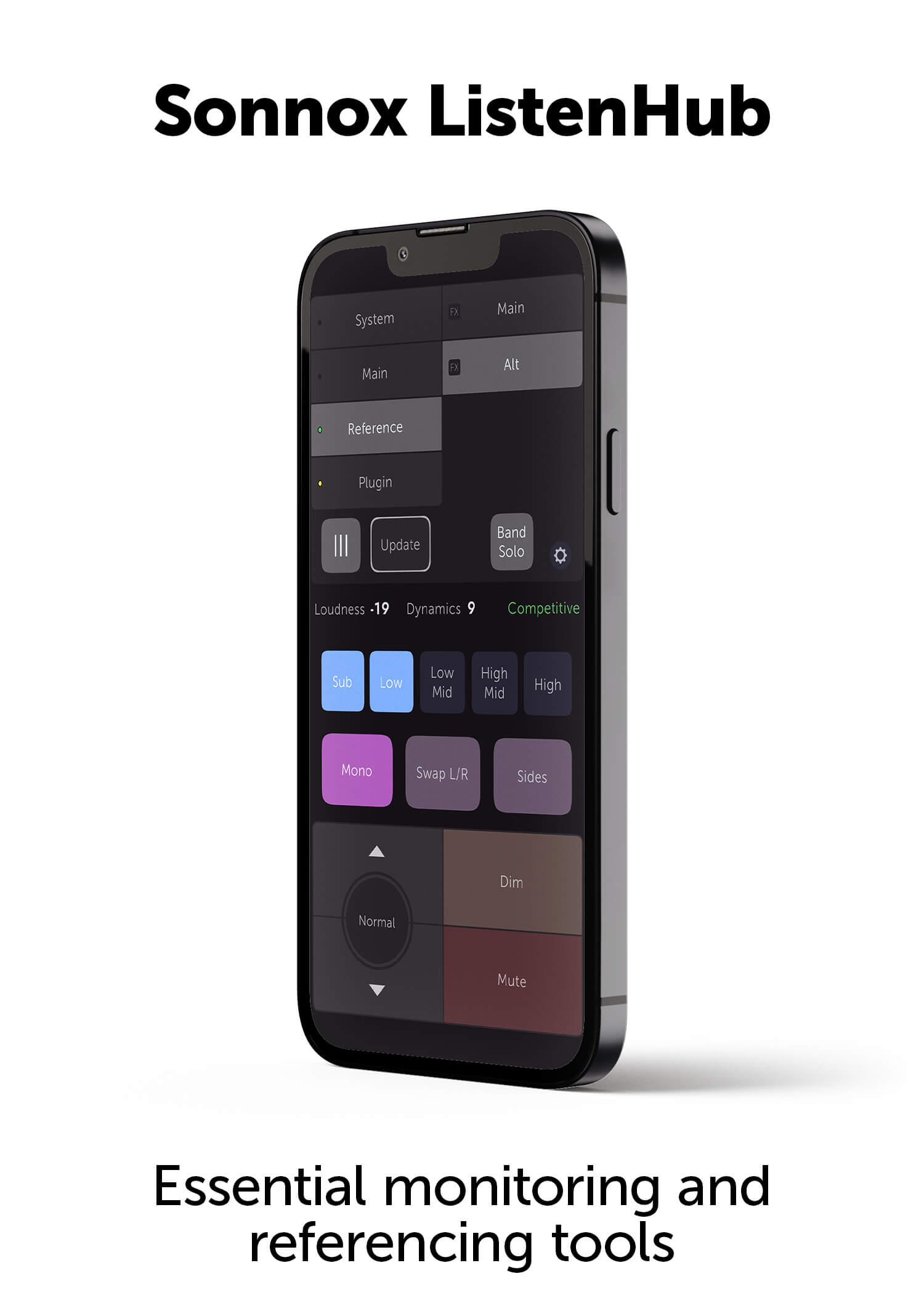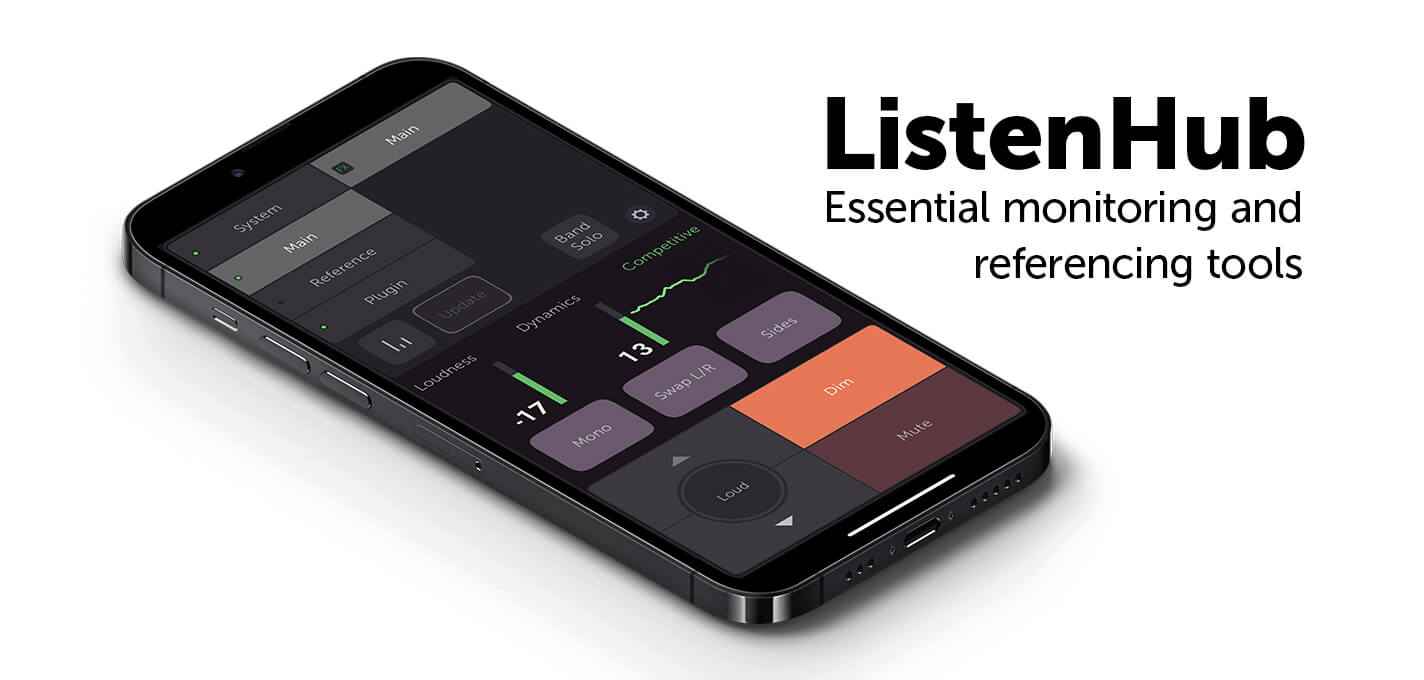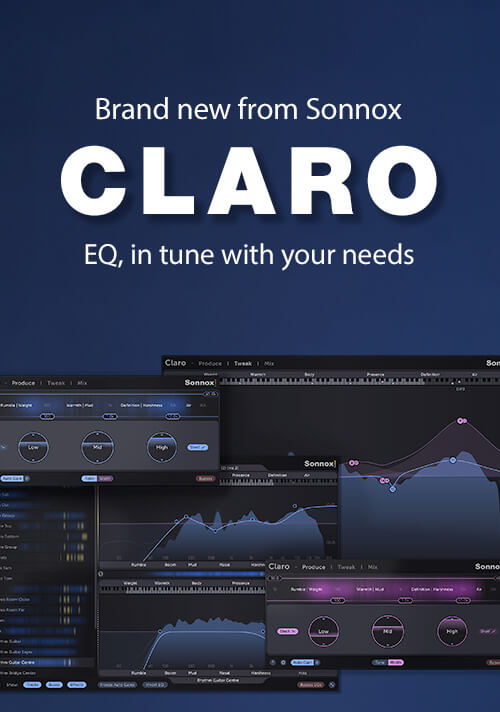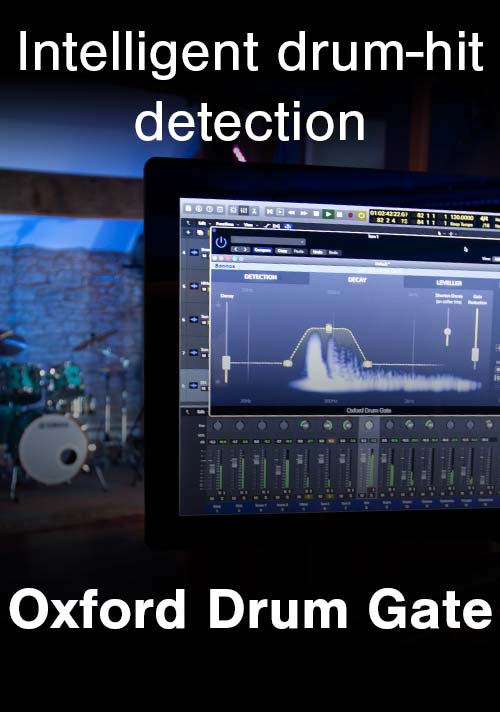Sandy Vee
Sandy Vee - Changing the Sound of American Music
There seems to be no stopping French song-writer/ producer Sandy Vee. When the president of a major US record company tells you “you’re changing the sound of American music”, you know you must be doing something right. In the last two years he’s written and produced tracks for such major artists as Rihanna, Katy Perry, Pitbull, David Guetta, Nicole Scherzinger, Britney Spears - the list goes on.
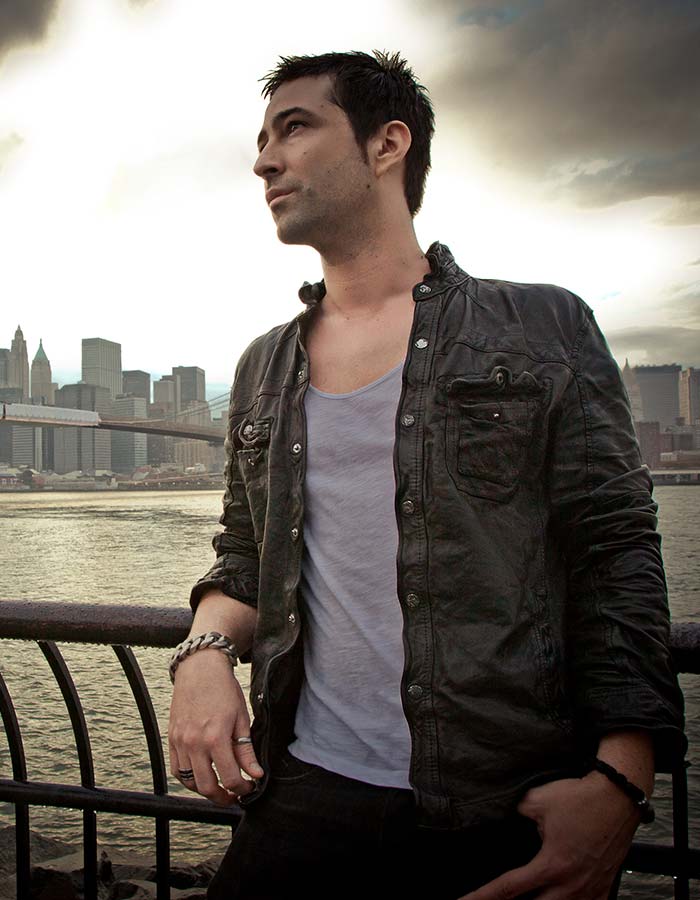
He also won a Grammy for Best Dance Recording in 2011 for Rihanna’s Only Girl (In The World) and garnered three grammy nominations in 2012 for Song of The Year, Album of the year, Best dance/electronic album. We managed to grab some time with him in his new home town of New York to find out how it all started, and why he uses Sonnox plugins.
So where did your music career begin?
At High School, I was classically trained on the double bass - that was my instrument. After a while I switched to playing bass guitar and discovered all sorts of new genres of music like jazz, funk, rock, etc. I also met a few DJs around that time. Hanging out with them I discovered club music, which I thought was the future for me. I liked the idea of taking the different styles I enjoyed playing as a bassist - acoustic, rock, pop, funk etc. - and mixing them with electronic sounds to form a distinctive new, modern sound. I bought my first computer, mixing desk and all the stuff I thought I would need, even though I didn't know much about computers or mixing at that time. I spent all my time learning how to put music together and build dance tracks. I was lucky to meet the right people at that time who were distributing house music in France, and within 18 months I had my first number one there - a track called Bleep. (which contains a sample of Robert Plant from Led Zeppelin.)
So I was this musician who had bought some great studio gear, and was learning really fast how to engineer and manipulate sounds. Soon I started changing the way I was thinking about the music, to looking at it from a mix point of view. Today as a producer, understanding mixing is big part of production - it helps define my sound.
I understood this concept back in the early days, and found that spending time shaping specific instruments and creating unique new sounds was a big part of making me stand out from the rest. For example, instead of using a sample that’s been heard a hundred times, I like to create big punchy kick drums that no-one has ever heard before, by layering 8 or 9 kick drums with different EQ and compression etc.
I am becoming more and more interested in making unique synth sounds too. Some people are quite lazy and over-use presets. whereas I will spend a lot of time generating new sounds, with software like Reaktor and things like that.
So how did you get from a being a House music producer in France to living in New York
and having number one hits all over the world?
Well, around the time of Bleep, some of the clubs asked me to DJ - which I'd never really done before. I thought, “ok - they want to pay me to mix some records together - why not?” So I did a bit of DJ-ing, but probably for less than a year actually. One of my last gigs was at Pacha in Ibiza, where I met David Guetta, who was just about to start work on his new album One Love. He asked me to work with him, and one of the resulting tracks, Sexy Bitch was a huge success worldwide.
Following the success of that track, I stopped DJ-ing and starting taking song writing really seriously, spending all my time in the studio. I was using all the different musical influences from my past and injecting them into my songwriting.
I then hooked up with Norwegian production duo, Stargate, and we had number ones with Rihanna, Katy Perry and others. I moved to New York about 18 months ago, as I seemed to be over here all the time anyway.
People know you as a songwriter and producer, but perhaps they don't know that you mixed
all these records?
Yes I mix all my stuff.
In the box?
Yes, I generally mix entirely in the box, using Nuendo, UAD-2, and many other plugins. I have just bought a 48-channel SSL which I'll be using from now on for summing. I just feel it just sounds better than trying to get a DAW to sum so many tracks, it sounds warmer too. I do have my tricks to make mixes warmer that are done entirely in the box, which I used on tracks like Firework and Only Girl etc, so it's not that they sound bad, but I want to make my mixes even better.
So you're a big fan of the Oxford Limiter?
Yes, I discovered it back when I was doing Sexy Bitch with David Guetta. The aim for that record was to make it as loud as possible without any distortion or other artifacts. I really used it a lot. I had an Oxford Limiter on all the individual drum tracks - all the kicks which I layer went to a bus with the plugin across it; the snares and bass had the Limiter plugin on them; and then finally the master bus had the Limiter on it too! I know it sounds over the top, and other mix engineers may frown at it, but that plugin played a big part in shaping my 'sound' - which I think is quite a big sound!
You can just get such a crazy level with the Oxford Limiter. It can handle what I throw at it. Sometimes I will drive up to 18dB of extra gain into it, and it just takes it and doesn't complain or distort. It's so transparent, it's insane!
I also love the fact that it doesn't affect the transients, and leaves the bottom end in good shape.
Do you use other Sonnox plugins?
I also use the Inflator plugin on bass, to make a big round bottom end, and also on some kicks to get more sub. I also use it on the master in a subtle way. And, I use the Oxford Reverb on synths to make them larger, which sounds very natural.
But I would say that the Limiter is my most used plugin from Sonnox.
In my opinion it’s the best Limiter on the market.
Interview and editorial provided by Rich Tozzoli
